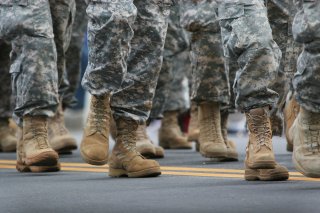Why Polarization in the Military Is a Growing Concern for Democracies
Military institutions often reflect the characteristics of their societies, so there is little reason to believe militaries are immune to social polarization.
In sum, social polarization can lead to several serious consequences for militaries, such as the decline of public trust, the politicization of appointment and recruitment processes, and the negative impact on battlefield performance. These consequences are particularly worrying in a time of growing political partisanship and polarization in societies, where the military’s neutral and non-partisan role can be threatened, and its ability to maintain public support may be compromised. Furthermore, a polarized military can become a menace to democracy, where its actions may even threaten fundamental democratic values. It is crucial to recognize the impact of social polarization on militaries and take action to mitigate its negative consequences, such as promoting merit-based appointments and curbing civilian politicization of the military. An institution tasked with national security and defense of the nation can’t afford political exploitation of its nonpartisan ethic and constitutional duty. Preserving the institutional identity and shared values of the military calls for resilience and resistance from military leadership, civilian defenders, and a vigilant public.
Mustafa Kirisci is an Assistant Professor of Homeland Security at Desales University. His research interests are terrorism, civil conflict, interstate conflict, and civil-military relations.
Ibrahim Kocaman is an Assistant Professor at the department of security studies and international affairs at Embry Riddle Aeronautical University. His research interests are civil conflict, civil-military relations, interstate conflict, and political economy.
Cagil Albayrak is a Ph.D. candidate at the University of Kansas. His research interests are terrorism, political institutions, and civil-military relations.
Image: Shutterstock.

